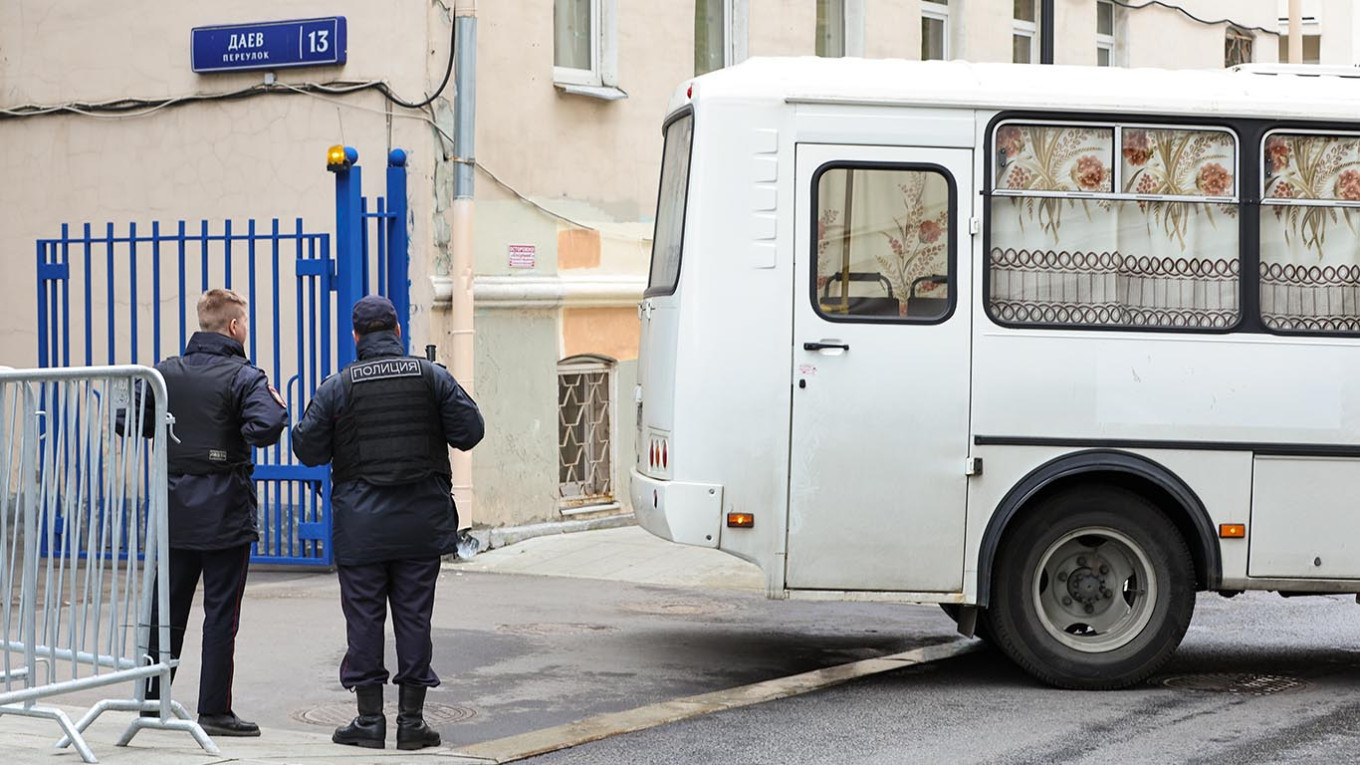Moscow’s police are utilizing facial recognition technology to apprehend men contesting their military draft orders, as reported by the Civil Alliance of Russia, a human rights organization.
Oleg Filatchev, the head of the Civil Alliance of Russia, stated that a 19-year-old client who is disputing his draft was apprehended at a Moscow metro station on Saturday and taken to a conscription center on Ugreshskaya Ulitsa, where it is alleged that approximately 20 other young men were also being detained under similar conditions.
Filatchev noted that when an individual disputes a draft order in court, local enlistment offices mark their personal information in government records as if they are evading the draft. Consequently, this could lead to automatic detainment when they appear on surveillance cameras that employ facial recognition technology.
Lawyers representing the detained individuals have reported difficulties in accessing their clients at the Ugreshskaya center, even when they present a notarized power of attorney.
Filatchev has suggested that those contesting their draft orders steer clear of the metro and, if arrested, decline medical examinations unless presented with a legally valid draft notification. He also recommended filing complaints with the military prosecutor’s office.
The Defense Ministry aims to conscript 135,000 men aged 18 to 30 during this autumn’s draft campaign, marking the largest conscription effort since 2016, when President Vladimir Putin mandated the call-up of 152,000 individuals for mandatory service.
In conjunction with the unprecedented 160,000 called up in the spring, a total of 295,000 men are anticipated to begin military service this year.
This fall, draft notifications in Moscow and regions such as Mari El, Ryazan, and Sakhalin are being issued exclusively in electronic format. These notifications are considered delivered once they are posted online, automatically preventing recipients from leaving Russia.
Men who do not report for duty may face various consequences, including prohibitions on registering as self-employed or as individual entrepreneurs, driving vehicles, obtaining passports, acquiring loans, or engaging in property transactions. They may also be subjected to fines ranging from 10,000 to 30,000 rubles (approximately $123-$370).

